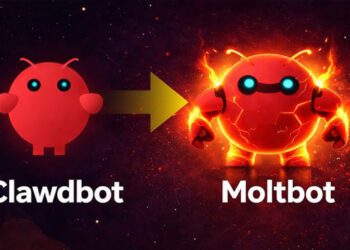TL;DR
In the tumultuous arena of large language models, two new titans demand attention, each embodying a starkly different philosophy of artificial intelligence. xAI’s Grok 4, particularly its heavyweight variant, emerges as the undisputed champion of raw benchmark performance, leveraging a colossal 1.7 trillion-parameter architecture and unprecedented computational power to dominate across reasoning, mathematics, and general knowledge tests. It represents the apex of scale.
Conversely, Moonshot AI’s Kimi K2, an open-source model, presents a paradigm of efficiency and specialized prowess; its innovative Mixture-of-Experts (MoE) architecture allows it to activate only a fraction of its one trillion parameters per query, achieving results that are shockingly competitive—and in some coding-specific benchmarks, superior—to its far larger rivals.
The choice isn’t between good and bad, but between two formidable, divergent paths for the future of AI: the all-encompassing, proprietary behemoth versus the nimble, democratized, and highly specialized expert.

The digital ink barely dries on one AI breakthrough before another seismic event reshapes the landscape. It’s a relentless, chaotic churn, a Cambrian explosion of cognitive architectures where dominance is fleeting and innovation is the only currency. In this high-stakes environment, we’re moving beyond monolithic comparisons to nuanced dissections of architectural philosophies.
Enter our two subjects: Grok 4, Elon Musk’s much-vaunted entry from xAI, and Kimi K2, a formidable open-source contender from the Chinese unicorn Moonshot AI. This is more than a simple performance review; it’s an exploration of two fundamentally different approaches to building intelligence, a tale of brute-force scale versus elegant efficiency.
A Trial by Numbers: The Benchmark Gauntlet
Benchmarks, for all their flaws, remain our most standardized measure of an LLM’s raw cognitive horsepower. They are the unforgiving gauntlets through which models must pass, testing everything from grade-school math to graduate-level reasoning and esoteric philosophy. When we pit Grok 4 and its more powerful sibling, Grok 4 Heavy, against Kimi K2, a clear pattern materializes.
General Knowledge and Reasoning
In the realm of broad, multi-domain understanding, scale often correlates with success. The MMLU (Massive Multitask Language Understanding) benchmark, a sprawling test across 57 subjects, sees Grok 4 Heavy achieve a commanding 91.5%, with the standard Grok 4 at 89.2%. Kimi K2’s 87.8% is incredibly respectable, demonstrating that its expert-driven architecture can hold its own against a model trained with vastly more computational overhead.
This trend continues with GPQA (Graduate-Level Google-Proof Q&A), a benchmark designed to thwart simple search-and-retrieve tactics. Grok 4 Heavy scores a formidable 86.3%, showcasing its deep reasoning capabilities. Kimi K2 lags slightly but still impresses at 81.2%. Similarly, on AGIEval, which uses problems from standardized tests like the GMAT and GRE, Grok 4 Heavy leads with 87.4% to Kimi K2’s 81.9%. The message is clear: for sheer breadth of knowledge, Grok’s massive parameter count provides a distinct advantage.
Mathematical and Symbolic Reasoning
Here, the chasm widens. Mathematical reasoning is a frontier where abstract, symbolic manipulation is paramount. xAI clearly prioritized this, and the results are staggering. On the AIME (American Invitational Mathematics Examination), a notoriously difficult contest, Grok 4 Heavy achieves a near-perfect 96.3%. This isn’t just memorization; it’s a display of sophisticated symbolic reasoning.
The story is similar on the MATH benchmark and GSM8K (Grade School Math), where Grok 4 Heavy scores 90.7% and 94.1%, respectively. Kimi K2 performs admirably, with scores of 90.1% on AIME and 88.7% on GSM8K, but Grok’s performance in this domain is, for now, in a class of its own.
Coding and Algorithmic Prowess
The narrative shifts when we turn to code generation. While Grok 4 Heavy still leads on the popular HumanEval benchmark with an 89.5% pass@1 rate, Kimi K2’s score of 82.6% is exceptionally strong and hints at its underlying strengths. Indeed, as noted by sources covering its release, Kimi K2 has shown chart-topping performance on more specialized coding benchmarks like SWE-Bench and LiveCodeBench, even outperforming models like GPT-4.
This suggests its MoE architecture, perhaps with experts specifically trained on code, provides a powerful and efficient engine for software development tasks.

Under the Hood: Divergent Architectures and Philosophies
The numbers tell only part of the story. The “how” is just as fascinating as the “what.”
Grok 4: The Brute-Force Behemoth
Grok 4 is an exercise in overwhelming the problem with scale. Built upon a hybrid neural network with a staggering 1.7 trillion parameters, it is a true colossus. Its training was powered by a supercomputer of 200,000 NVIDIA H100 GPUs, a testament to the immense resources behind it. Its unique features are born from this scale: a massive 256,000-token context window that can ingest entire novels in a single prompt and, most uniquely, real-time data integration with platforms like X.
This gives it a “liveness” that other models lack. The philosophy is clear: bigger is better, and more data—especially real-time data—creates a more capable intelligence. Grok 4 Heavy takes this a step further, running multiple Grok instances in parallel to cross-reference answers, a brute-force method for achieving higher confidence and accuracy.
Kimi K2: The Efficient Specialist
Kimi K2 represents a different, arguably more elegant, path forward. Its Mixture-of-Experts (MoE) architecture is its defining feature. While it boasts one trillion total parameters, it only activates a sparse 32 billion for any given query. Imagine a library with a trillion books, but a librarian who knows precisely which 32 to pull to answer your question. This is the power of MoE. It allows for massive scale in knowledge capacity without the crippling computational cost of activating the entire network for every token.
This efficiency is made possible by innovations like the Muon optimizer, which stabilized training at such a massive scale. Furthermore, Kimi K2’s identity as an open-source model is a profound philosophical statement. It democratizes access to state-of-the-art AI, empowering a global community of developers and researchers to build upon its foundation. Its focus on “agentic intelligence” and tool use further defines it as a model built not just to talk, but to do.
The Tale of the Tape
Declaring a single “winner” between Grok 4 and Kimi K2 would be a disservice to the distinct excellence each represents. Grok 4 is the heavyweight champion, a marvel of engineering scale that currently sets the high-water mark for raw, generalized cognitive performance across a wide array of benchmarks. It is the state of the art in proprietary, large-scale AI.
Kimi K2 is the agile, expert martial artist. It is a triumph of architectural innovation, proving that through clever design, one can achieve world-class performance without world-breaking computational costs. Its open-source nature and specialized strengths, particularly in coding, make it a revolutionary tool for the developer community.
The contest between them is not just about scores, but about the very future of AI development—a future that will undoubtedly have room for both the all-powerful colossus and the nimble, democratized expert.









